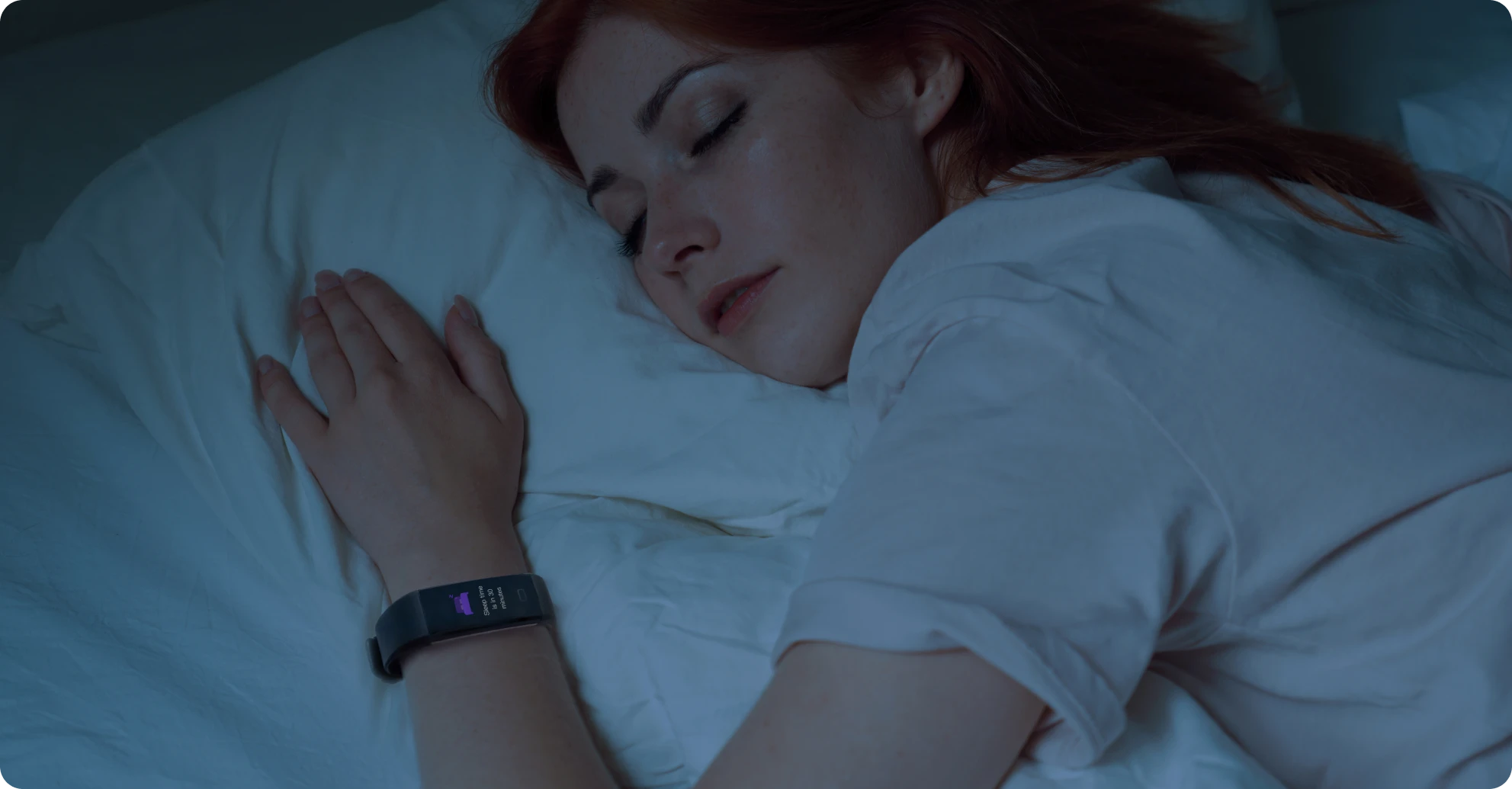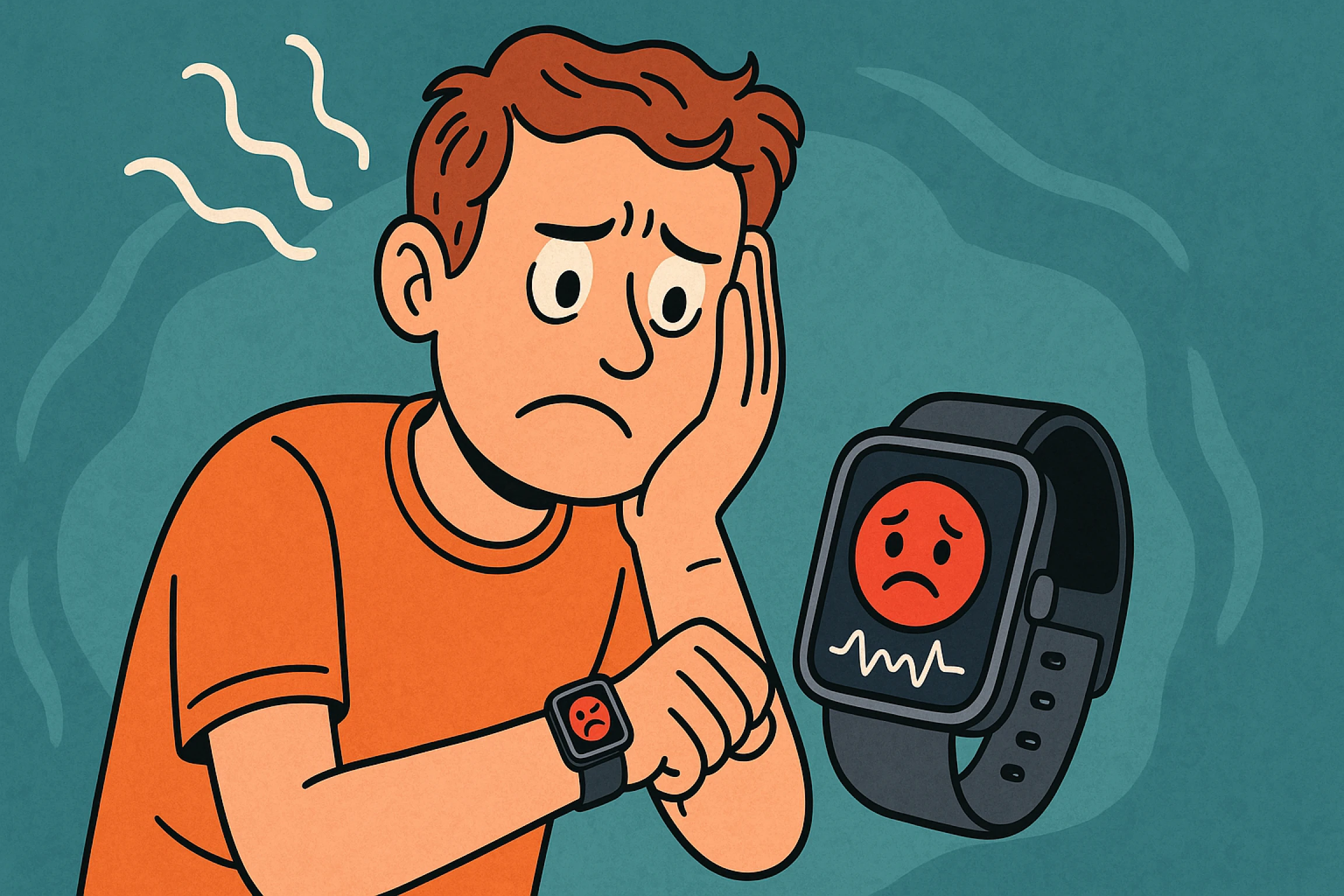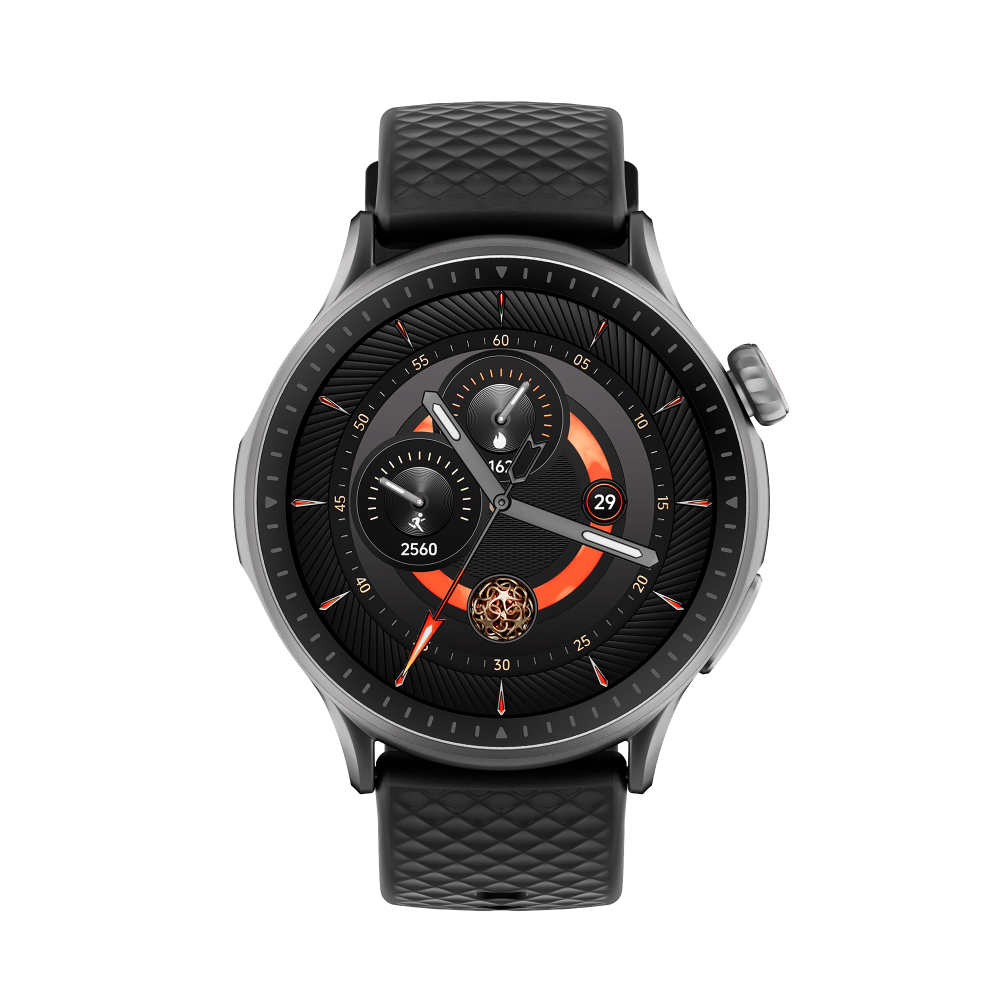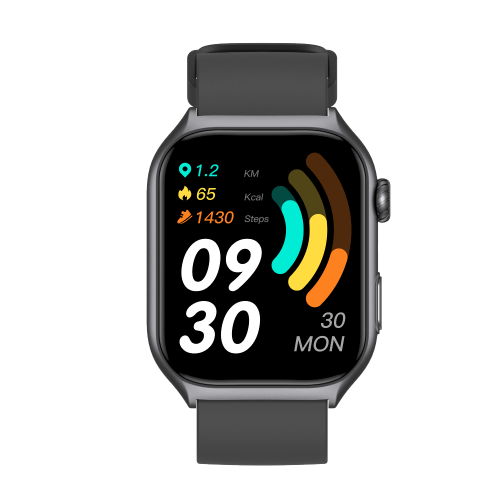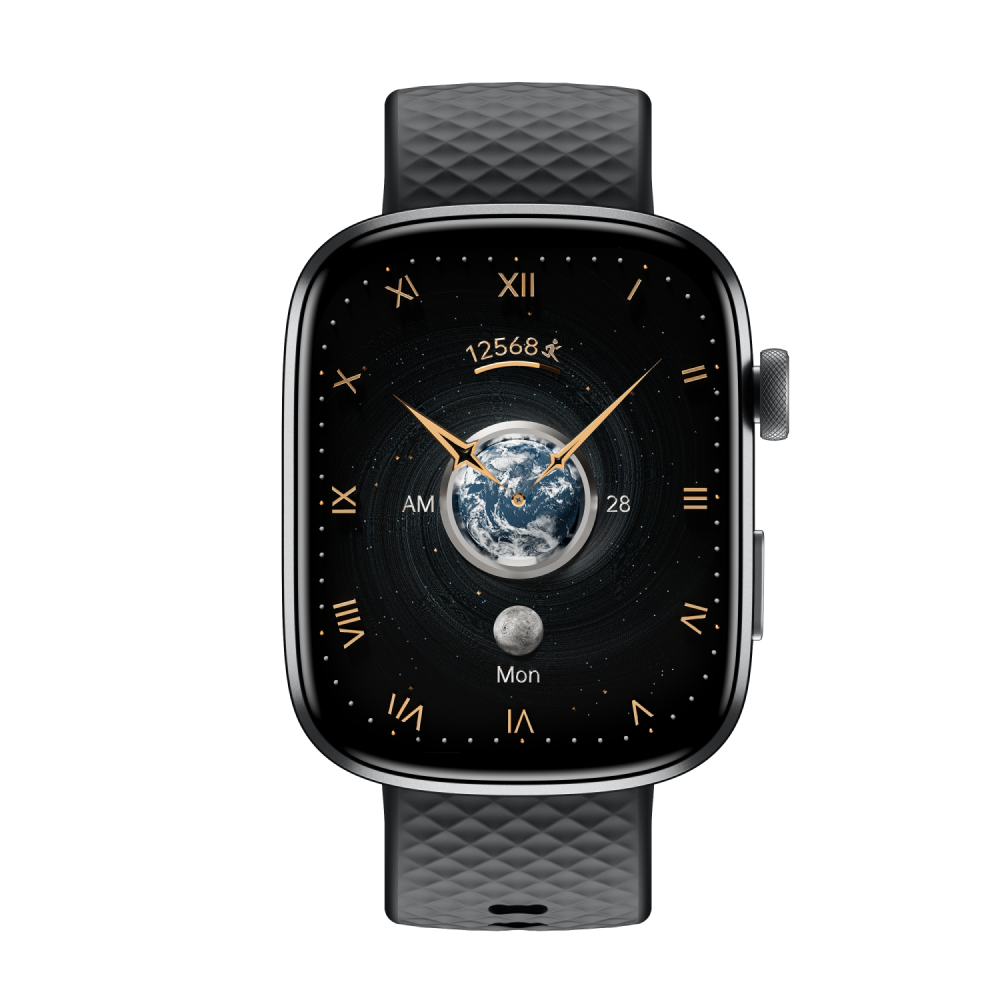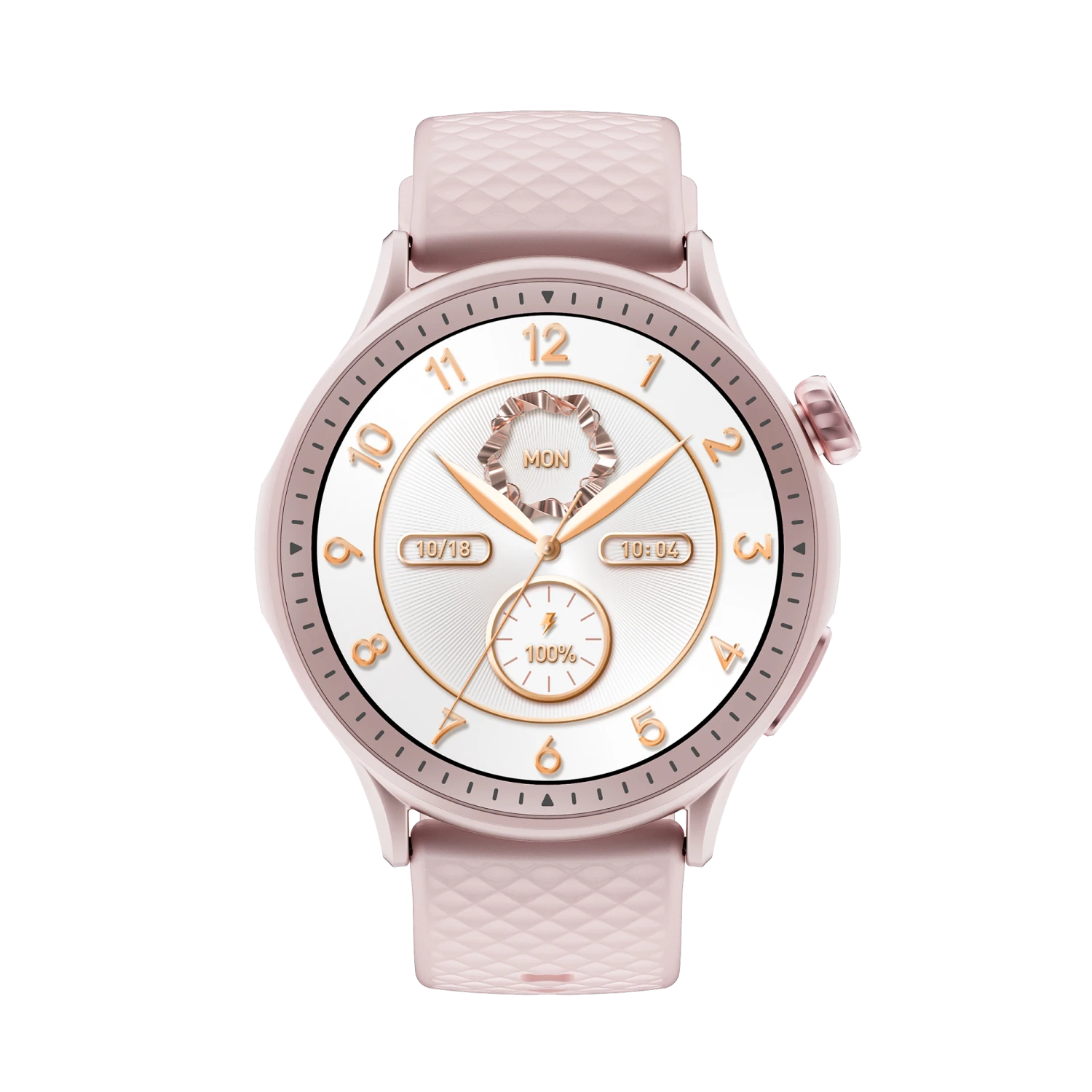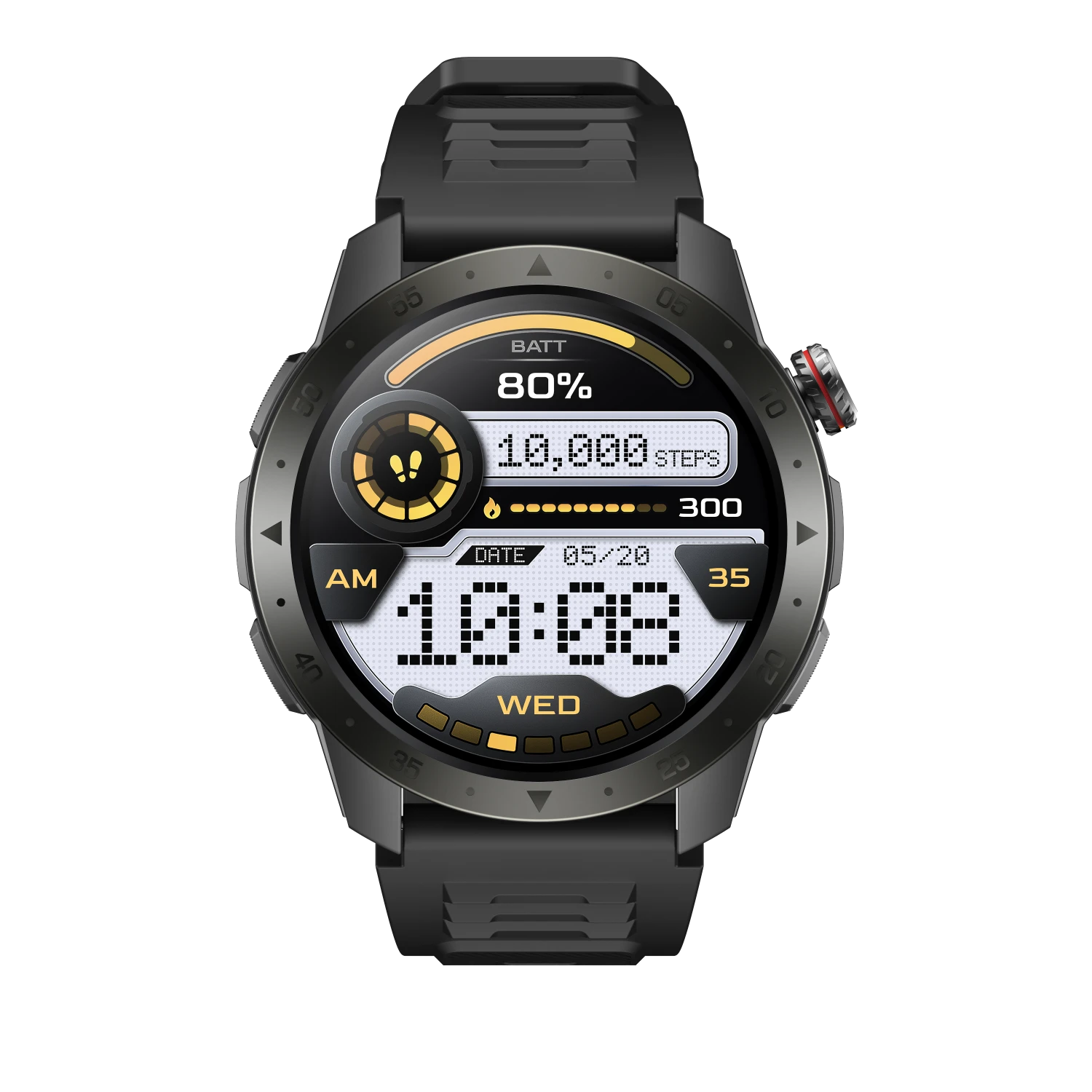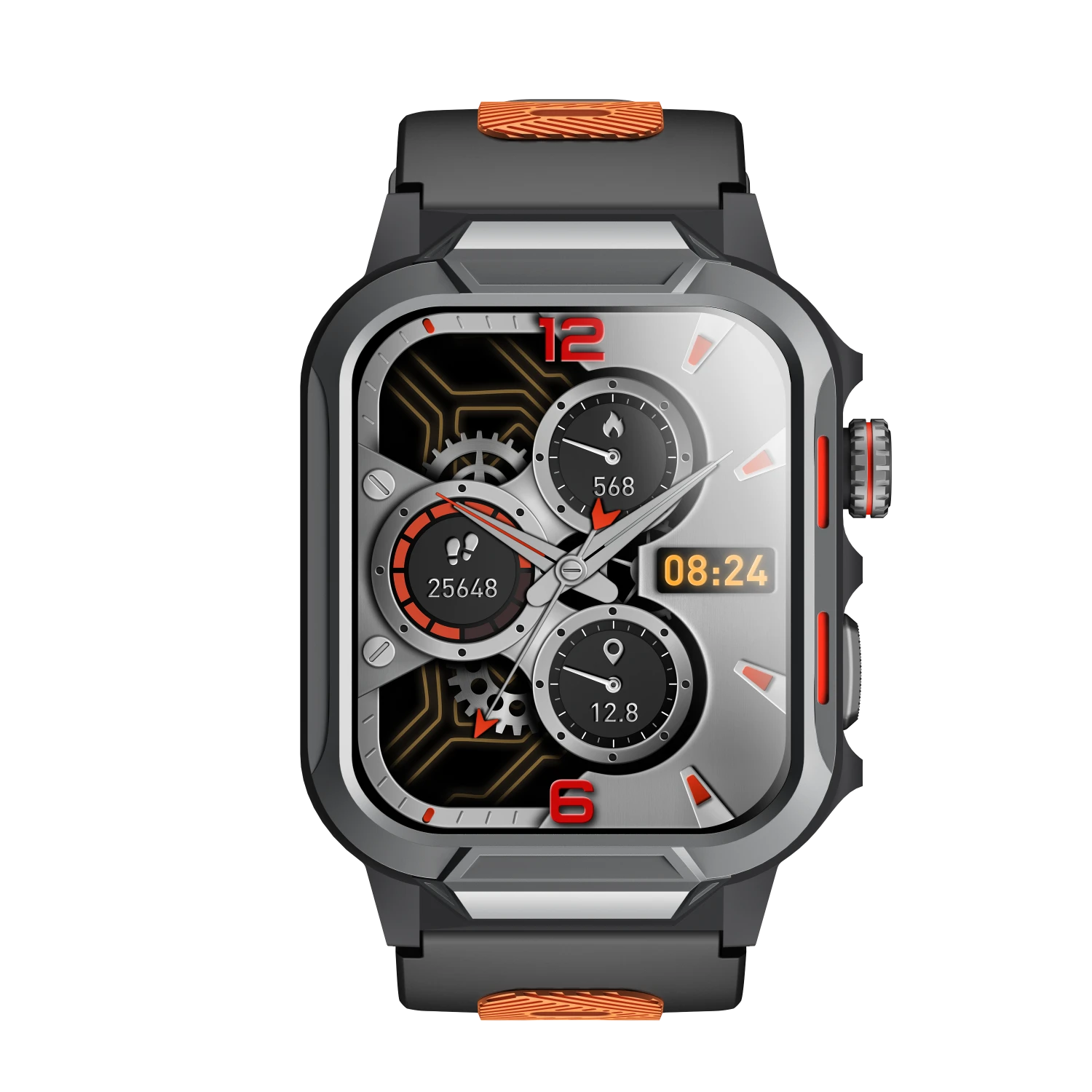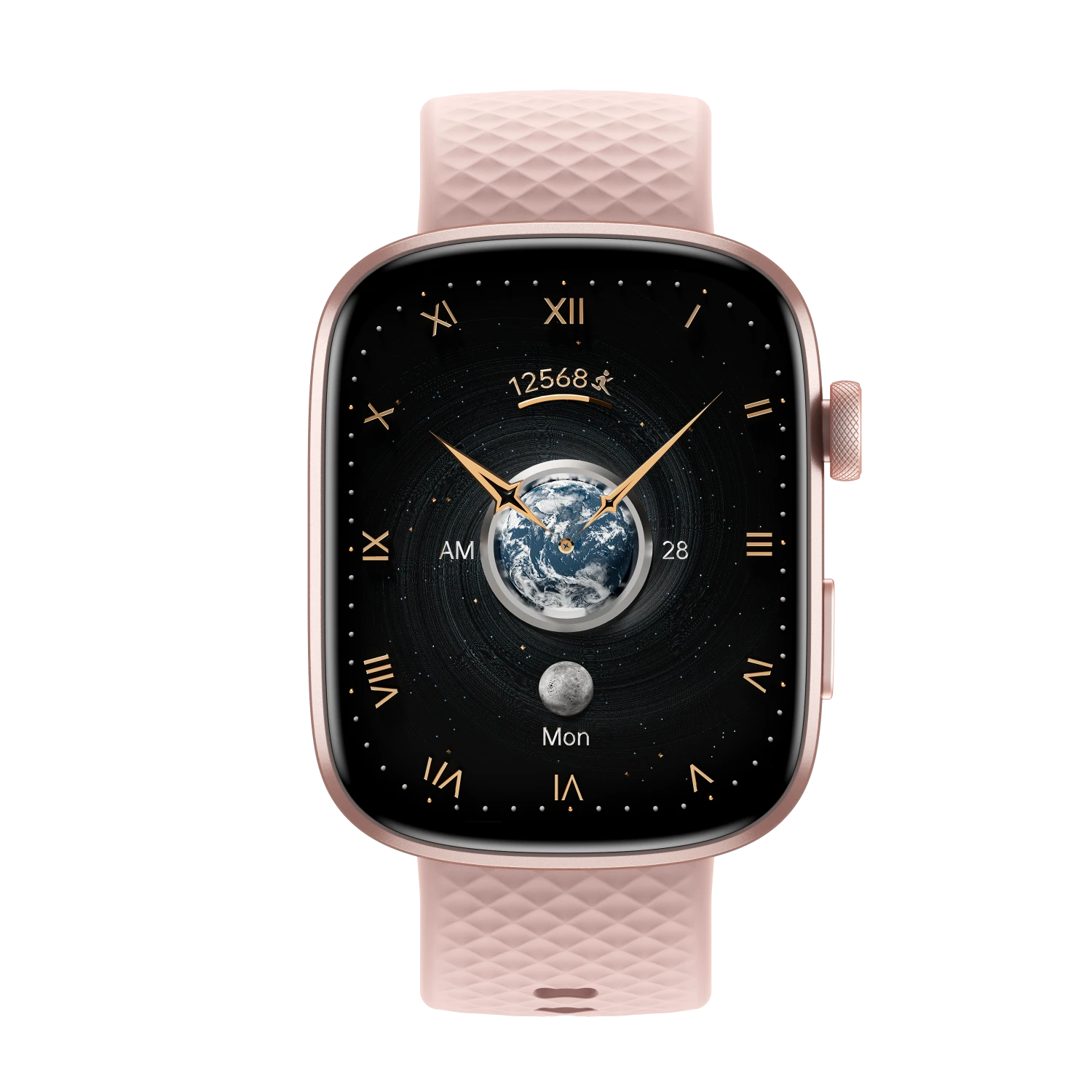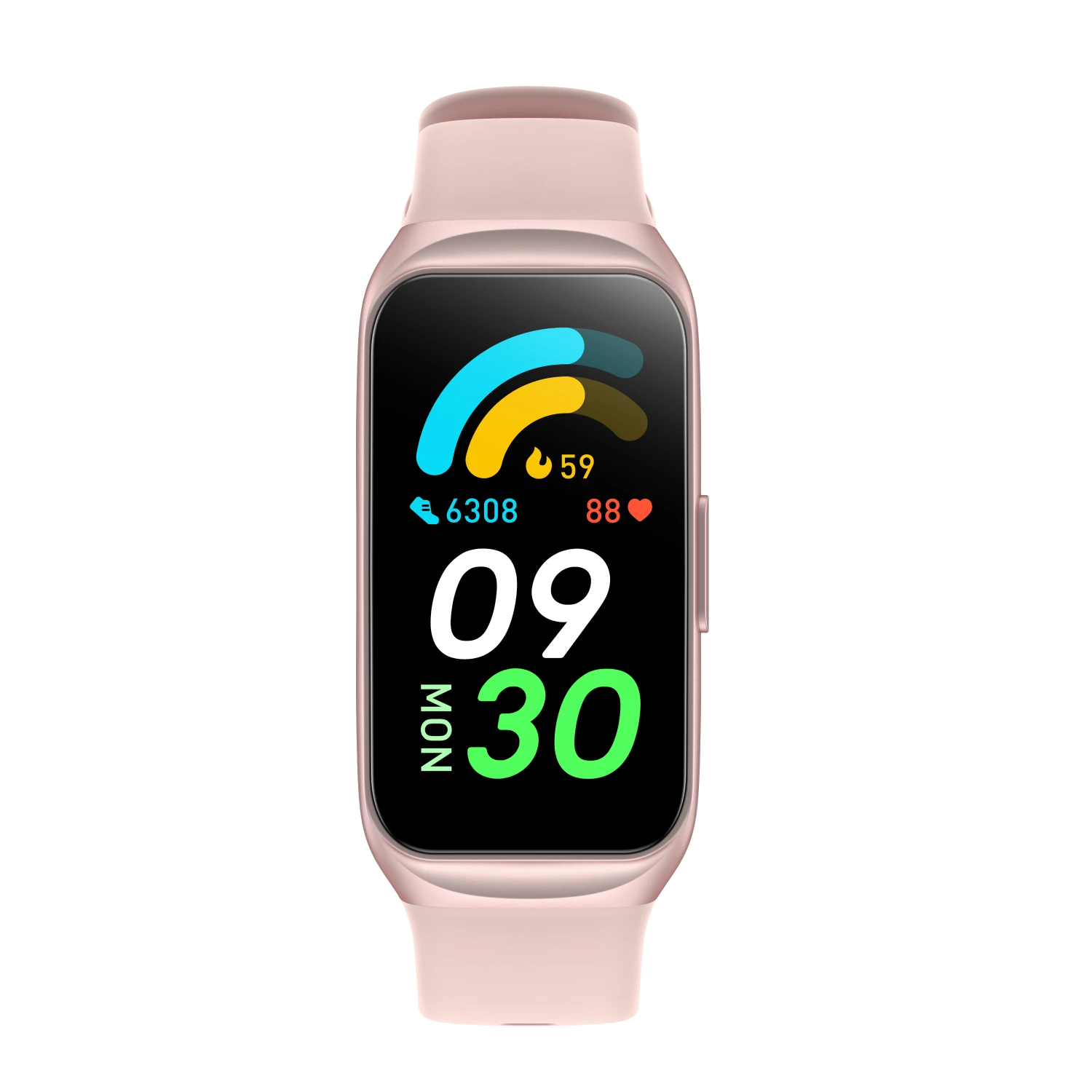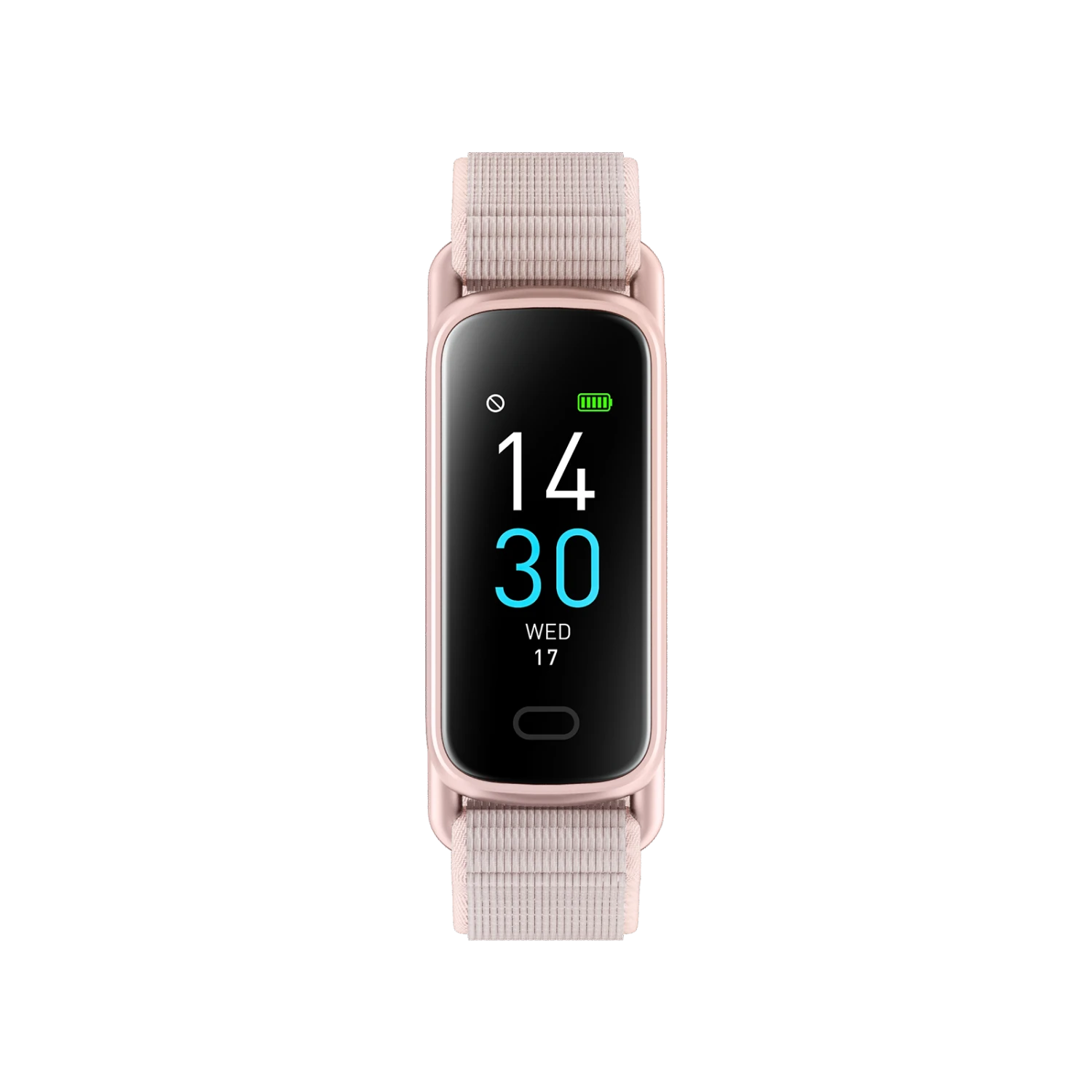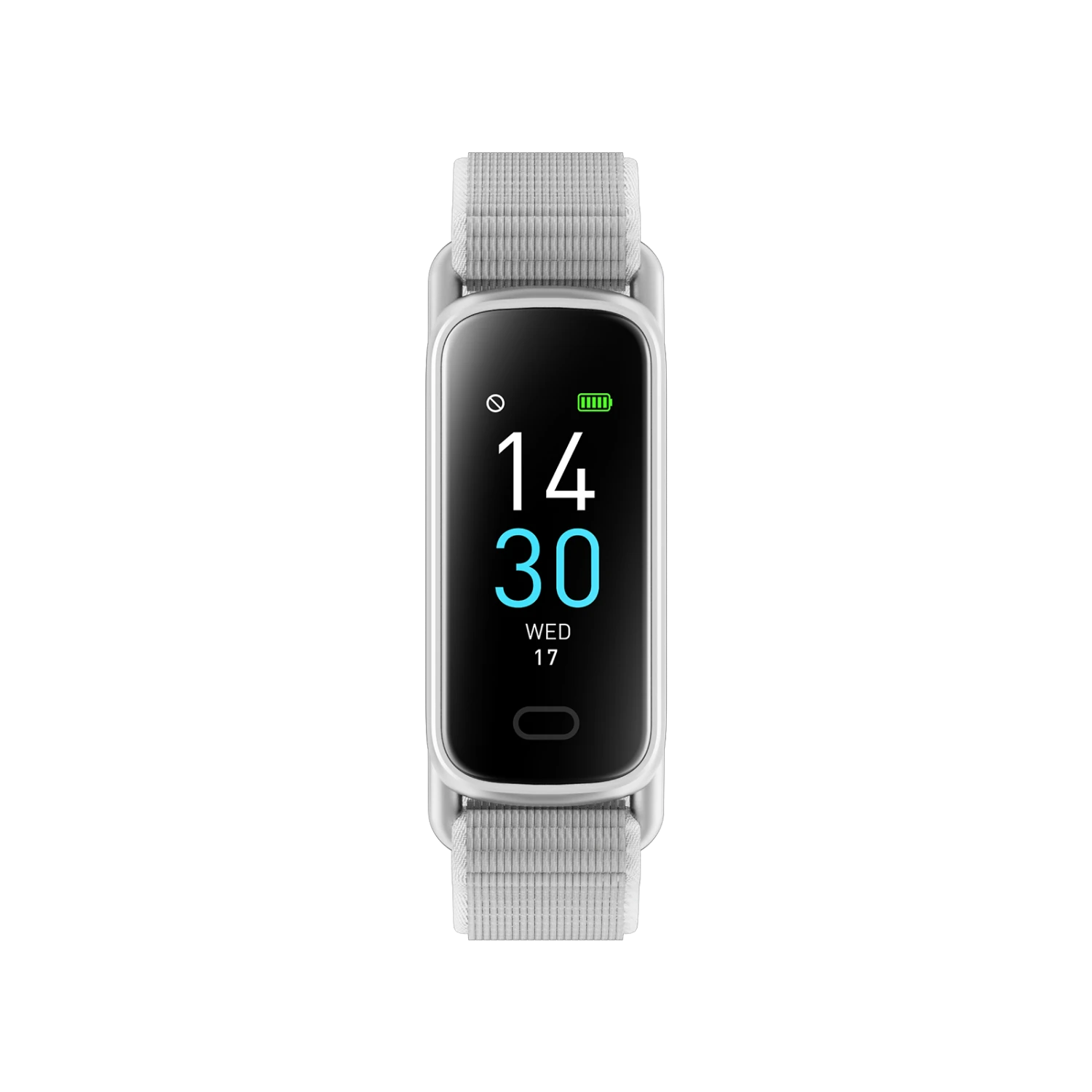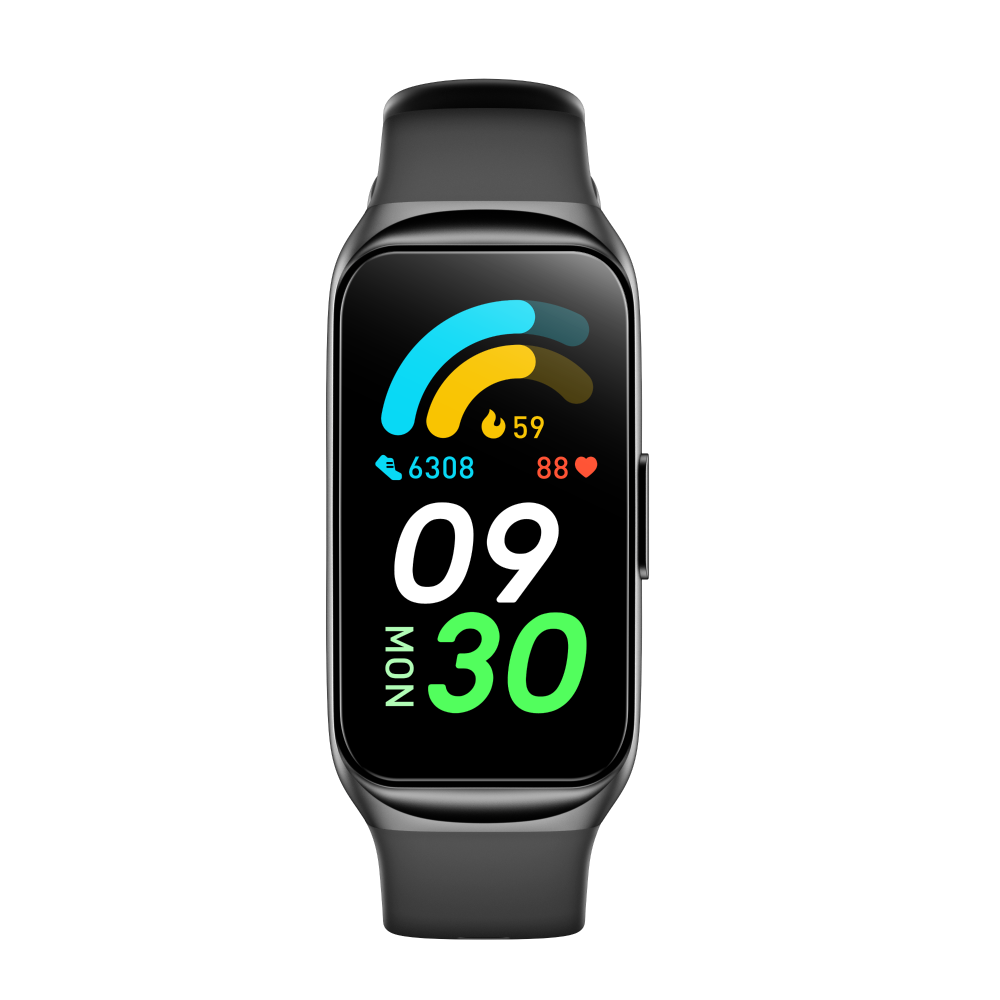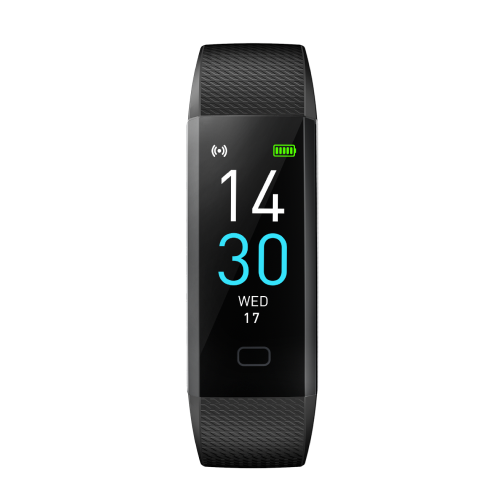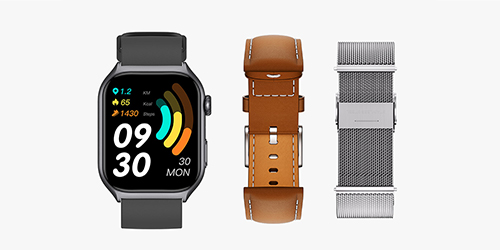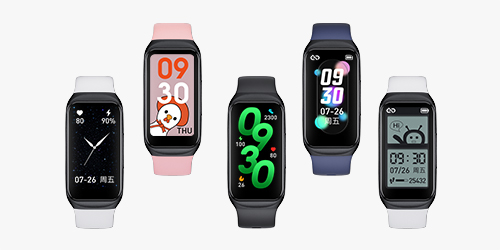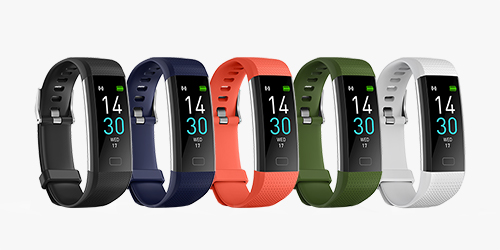Sleep matters. No doubt about it.
But what if you could actually understand your sleep patterns and get useful tips to improve them? That’s where a smartwatch or fitness tracker comes in—it’s like a mini sleep lab on your wrist.
These devices use built-in sensors to track your heart rate, breathing patterns, sleep stages, and more—giving you a clearer picture of your nightly rest. And if you’re using something like the Runmefit smartwatch, you’ll get smarter insights powered by data and AI. Curious? Let’s talk about why that really helps.
Is It Healthy to Sleep with a Smartwatch?
First off, you might wonder, “Is it ok to sleep with a watch on?” The short answer: absolutely. A lot of people worry about comfort or safety, but most modern smartwatches are lightweight, hypoallergenic, and built for round-the-clock wear. Modern smartwatches use low-energy Bluetooth and gentle sensors that don’t interfere with your sleep. If anything, they help you understand it better.
Comfort-wise, it fits snugly yet softly, so you hardly notice it when you sleep. And the benefit? You don’t miss out on all those sleep metrics. You can even find some smartwatches with extra-large batteries that can last anywhere from 7-30 days, so it’s easy to wear all night and it can be a useful sleeping companion. In short: healthy, safe, and worth it.
How Does a Smartwatch Measure Your Sleep?
Basics of Sleep Tracking Technology
Sleep tracking works by combining data from motion sensors, heart rate monitors, and sometimes even skin temperature. The watch uses this data to figure out when you fall asleep, how long you sleep, and how restful your night was.
Key sensors to track your sleep:
- Accelerometer: tracks your movements.
- Optical heart rate sensor: measures your heartbeat.
- SpO₂ sensor: monitors blood oxygen levels (most watches, including Runmefit, have this).
- Skin temp sensor: sometimes used to detect temperature shifts during deep sleep.
Together, they give your watch a clear picture: when you fall asleep, when you move, how your heart behaves, and how well oxygenated your blood is.
That data is then translated into sleep stages—awake, light, deep, and REM sleep—using algorithms. The watch then mixes those signals to estimate each sleep stage and show you a sleep cycle graph in the morning. Most of them can even sync data to the app and manage all your data in one app, which is awesome.
How Runmefit Tracks Sleep Stages
The Runmefit watch takes it a step further. Runmefit doesn’t just log basic stats. Every night, it breaks down how long you spent in each sleep stage:
- Light Sleep — the easier-to-wake stage.
- Deep Sleep — your body repairs itself.
- REM Sleep — where you dream and build memories.
Runmefit even tracks how many times you wake up during the night. Through the connected app, it records your sleep patterns over time and uses that data to spot trends. With the help of AI, it offers personalized tips based on your habits, like adjusting your bedtime or improving your sleeping routine. And the best part? The longer you use it, the smarter and more tailored those tips become.
What Your Body Signals Say About Your Sleep
Heart Rate Signals During Sleep
Your heart rate drops from your waking average while you first fall asleep—but how much is “normal”?
For most adults, it’s between 40 and 60 beats per minute (bpm). If you’re a athletes or very fit, your heart rate might drop into the low 40s. That’s usually a healthy sign. It happens because your body is relaxed and your parasympathetic nervous system (the “rest and digest” system) takes over.
Heart rate fluctuations during sleep stages
Your heart rate isn’t static through the night. It changes during the night, and that’s normal. It typically fluctuates depending on the stage you’re in.
During deep sleep, your heart rate is low, which means your body is truly resting. As you enter REM sleep, it can climb slightly, sometimes nearing your daytime resting heart rate. These fluctuations are totally normal and reflect how your body cycles through different stages of rest.
The Runmefit watch tracks your heart rate using PPG sensors and then shows you a heart curve in its app. That curve ishould aligned with your sleep stages, so you can check if your heart rate dipped at the right time.
What low or high HR at night can signal
A low heart rate (40-60 bpm) when sleeping usually means good fitness or deep rest. But if it too low or you feel tired or dizzy during the day, it could be worth checking with your doctor.
But if your heart rate is high while sleeping, that could be a sign of disrupted sleep or poor sleep quality due to stress, caffeine, or even an underlying issue. If your average heart rate stays elevated night after night, it’s a red flag your body isn’t fully resting.
Heart racing upon waking
That sudden jolt awake with a pounding heart? It happens to the most of us. Sometimes it’s just your body adjusting quickly as you switch from deep sleep to wakefulness. Or, your body might be reacting to a nightmare or a spike in stress hormones.
How HRV Reflects Your Sleep Quality
Heart rate variability (HRV) is another key signal. It is the tiny difference between beats—beats that don’t come at perfectly even intervals. A higher HRV during sleep often means your body is relaxed and recovering well. But a low HRV? That might mean stress or poor sleep.
So wearing a smartwatch to bed and recording the data everyday can help you know better of your sleep. For example, if your HRV stays low, it may suggest your body needs more rest or recovery. Over time, you can get a clearer idea of what helps your body bounce back fastest—like meditation before bed or skipping late-night screen time.
Respiratory Patterns While Sleeping
Your breathing rate is just as important as heart signals.
Without breathing rhythm, your sleep quality drops. Advanced smartwatch can track respiratory rate (sometimes called “breathing frequency”) during sleep automatically. It counts how many breaths you take per minute and how consistent your breathing is.
If you breathe too fast, slow, or irregularly, that might indicate congestion, stress, or even sleep apnea. This helps you—or your doctor—spot things like sleep apnea or asthma that impact your breathing rate while sleeping. By spotting changes early, you can take steps to improve your sleep and overall health.
Get Better Sleep with Runmefit AI Insights
Now that you know what these signals mean, what do you do with them? Runmefit isn’t just about collecting data. Its smart AI gives you daily insights to improve your sleep habits. It learns your unique sleep style and offers tips based on your patterns. Whether it’s suggesting an earlier bedtime or helping you understand a spike in heart rate, it’s like having a sleep coach on your wrist.
Better sleep starts with better tracking. And with Runmefit, you’re not just counting hours—you’re understanding what your body needs. Here’s where Runmefit’s smart features come in:
- Nightly Sleep Score – A total rating that mixes your sleep duration, how much deep and REM you got, heart rate, respiratory rate, and HRV.
- Trend Reports – Weekly and monthly breakdowns to see patterns, like “you sleep better when your HRV is high and you go to bed before 10 PM.”
- Personal Tips – Runmefit AI gives suggestions based on your data. For example:
- If your breathing fluctuates a lot, it may suggest a humidifier or allergy check.
- Low deep sleep? Try a pre-bedtime meditation or avoid heavy meals late.
- High resting heart rate at night? De-stress before bed or avoid caffeine after 4 PM.
- Smart Sleep Plan & Alarm – Wakes you up according to your customized sleep plan, perfectly matching your sleeping habits, so you wake up feeling refreshed.
Sleep Smarter Tonight
Sleep is complex—but a smartwatch like Runmefit makes it understandable—and actionable. You don’t need to be a sleep scientist to see your body’s signals, especially when the insights are delivered in a friendly, helpful way.
Here’s a quick recap:
- Smartwatches are safe and comfy to wear at night.
- They track sleep stages, heart rate, breathing, and HRV.
- Runmefit adds more features like sleep scores, trends, and smart tips.
- It also has smart alarms to wake you up gently.
- Sleep isn’t just about time—it’s about quality and recovery.
- Runmefit helps you find the best routine for deeper, better sleep.
So next time you ask, “Why smartwatch as a sleep tracker?” the answer is simple: it’s your personalized sleep coach, catching details you’d otherwise miss. And with Runmefit, those details come alive with tailored insights.
Final Thoughts
Your sleep journey gets real when you understand the signals your body releases. Sleep stages, heart rate changes, breathing patterns, HRV—they all matter. A smartwatch on your wrist picks up on them effortlessly.
Need restful sleep and a fresh start tomorrow? Give your Runmefit smartwatch the night off—wear it to bed, let it collect info, and then wake up to data that actually helps.

